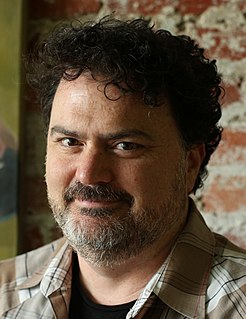Top 34 Quotes & Sayings by Tim Schafer
Explore popular quotes and sayings by an American businessman Tim Schafer.
Last updated on April 14, 2025.
After 'Psychonauts,' we could have laid off half our team so that we'd have more money and time to sign 'Brutal Legend.' But doing so would have meant breaking up a team that had just learned how to work well together. And what message would that have sent to our employees? It would say that we're not loyal to them, and that we don't care.
I think I just have an idea in my head about how big an adventure game should be, so it's hard for me to design one that's much smaller than Grim Fandango or Full Throttle. There's just a certain amount of scope needed to create a complex puzzle space and to develop a real story. At least with my brain, there is.
I've always seen this overlap between medieval warfare and heavy metal. You see heavy metal singers and they'll have like a brace around their arm and they'll be singing about Orcs. So let's just make a world where that all happens. That all gets put together, the heavy metal, and the rock, and the battling, actually does happen. Let's not flirt around with this let's just do it.
Oh yeah - you have to write every day. Or every weekday. Because writing is a job. It's not eureka moments over and over. It's grueling work, panning for gold. You just keep at it and eventually you get a few grains. Or flakes. Or whatever gold looks like in rivers. Or maybe it's like fishing. Who cares? You just have to do it every day because you never know which day is going to be your productive day.



















